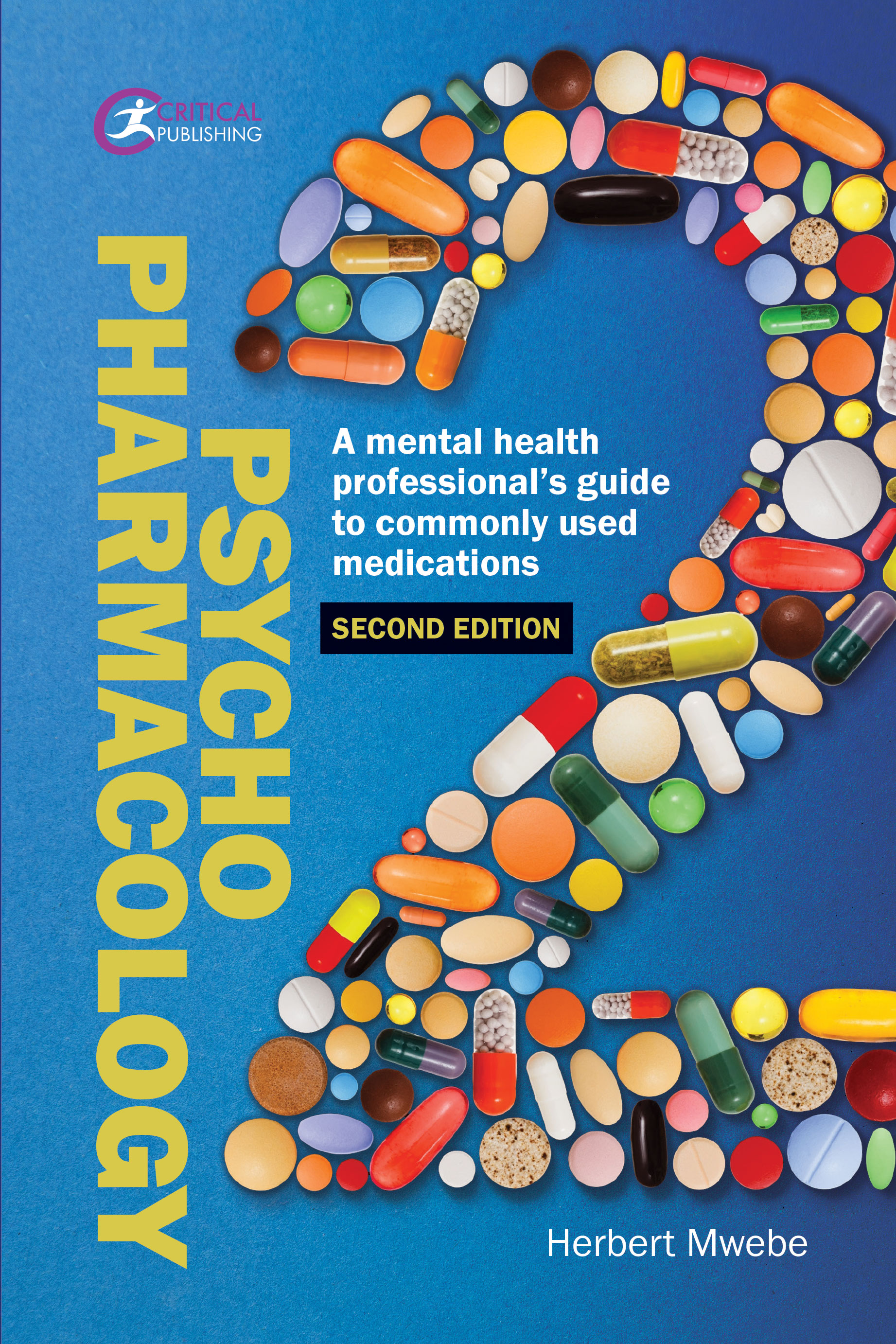
This jargon-free book is suitable for all trainee and registered health professionals who require knowledge and understanding of drugs used in the treatment of mental health conditions for prescribing or administering purposes.
Whilst there are various alternative interventions to managing moderate to severe mental health presentations, psychotropic medications remain the mainstay interventions used in various clinical settings. These medicines have been around for over 5 decades with evidence showing that they help to lessen and improve the severity of psychiatric symptoms in people suffering with a mental illness. The arbiter of whether these medications are useful or not is the person taking the medication. Just like most drugs, psychiatric drugs produce benefits and risks for patients; it is the duty of the health professional to have a good understanding of the benefits and harm we expose patients to when psychiatric medication is considered as an intervention.
Throughout the 1960s to the early 1990s, extrapyramidal side effects associated with the use of first generational (typical antipsychotic drugs) were the main concern for people taking these drugs. However, over the last decade, there has been increasing concern around, and incidence of metabolic effects related to the second general antipsychotic drugs (atypical drugs); these include weight gain, diabetes, dyslipidaemia and glucose intolerance. Very often, mental health professionals complain about non-adherence with treatment and silently blame patients for refusing to consume drugs that while useful in alleviating psychiatric symptomatology, are equally harmful and toxic to their health and wellbeing.
Empathy is a common term we like to use as health professionals to try and live in any of our patients’ sensory modalities through their journey. Nevertheless, I wonder how many of us in our daily clinical practice try to appreciate the challenges and difficulties of firstly living with a complex illness like schizophrenia and secondly, how medications (e.g haloperidol or clozapine) might either worsen or improve the person’s physical, mental and psychological wellbeing. Do we stop to appreciate whether in prescribing medication that may induce sexual side effects, that patients will continue taking these medications? The reality of weight gain and obesity in the psychiatric population is not far removed from the characteristically more “refined” newer drugs or atypical antipsychotics. We know that poor physical health is linked to developing mental illness, likewise, mental illness can cause or reflect poor physical health in patients.
Mental health professionals have a central role and duty to play in alerting patients of how the medications they take work, their limitations and side effects and potential benefits as well as alternatives. At the very least, in doing so, this may enable patients/ mental health service users, especially those taking psychotropic medications, to manage their own condition. To achieve this, the Nursing Midwifery Council (NMC), Royal Pharmaceutic Society (RPS) and General Medical Council (GMC) expect all their members and registrants to possess up-to-date skills and knowledge around safe use and administration of medications in clinical settings, the recognition that medication interventions are a part of a wide-ranging interventions, and that medication is just a tool to aide recovery and should not define how health professionals’ work.
With all of the above in mind, the content of this book, including updated and newly added information of clinical management in substance use disorders and clinical decision making, is relevant to students on health courses, qualified health professionals and users of mental health services, helping them to develop a sound appreciation and understanding of the main first line interventions used in clinical psychiatry.
Herbert Mwebe is the author of Psychopharmacology: A mental health professional’s guide to commonly used medications
ISBN: 9781914171444 235pp £24.99
Available now in Paperback, EPUB, and PDF for just £24.99!
For more on Psychopharmacology: A mental health professional’s guide to commonly used medications click here
